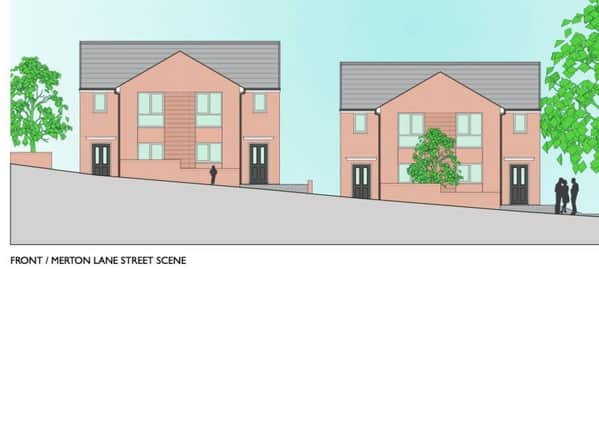Success for developers whose idea attracted a new crowd


Alternative ways of funding developments are moving into the mainstream thanks to the difficulties in getting bank funding.
Small to medium sized house builders have been especially hard hit by conventional lenders who refuse loans or place restrictive conditions that
blight the progress of projects.
Advertisement
Hide AdAdvertisement
Hide AdThe success of York-based Helmsley Group is partly because its developments are privately funded by a string of uber-rich individuals.
Peer-to-peer lending is also proliferating. LendInvest is one of the fastest-growing alternative finance companies in the country and specialises in property funding. Since its launch in 2008, individuals and institutions looking for a return have invested almost £1 billion in loans to borrowers who
have bought, built or renovated over 2,700 properties in the UK.
Over in Sheffield, six new affordable homes are being built thanks to CrowditBuildit, an equity-based crowdfunded project. It was supported by Sheffield City Council, which identified a suitable site: a small parcel of brownfield land at Merton Lane, Wincobank, near Meadowhall, that it had struggled to sell. The two-bedroom semi-detached properties, due to be finished by October, are now on sale for £117,500, which is 11.5 per cent below market value. To stop
Advertisement
Hide AdAdvertisement
Hide Adspeculators, there is a resale clause. They can only sell for 80 per cent of the market value in the first year of ownership and 90 per cent in the second
year. At the end of the third year they can sell for the full market value by which time there will be ready-made equity in the property, giving the owners a sizeable deposit for their next home if they want to move.
CrowditBuildit founders, custom-build expert Yan Lewandowski and former university lecturer John Paul Kawalek, came up with the idea after debating the housing crisis and the need for more affordable homes. They are now planning to roll the business model out across the country.
The concept involves finding parcels of brownfield land and gaining planning permission. Once permission is granted, crowd funding begins to fund
development.
Advertisement
Hide AdAdvertisement
Hide AdIts profit margins are lower than a conventional developer and, as a custom builder offering buyers a degree of choice in the design of their home, it is exempt from paying a community infrastructure levy. “That’s how we are able to cut costs and make the properties affordable,” says John. “The building element of the project can last as little as four to six months for a small site and the objective is to pay back investors within one year from the point of draw-down.”
One of the major benefits of crowdfunding is having the land and development costs upfront. Yan says: “Bank loans can be problematic as finance are released in stages as construction progresses and that doesn’t always align with ordering materials and hiring contractors.”
To ensure compliance with the Financial Conduct Authority and to make the venture secure for investors, CrowditBuildit spent 18 months devising
a sophisticated legal framework, managed by Wosskow Brown solicitors. It allows an investor to take a share of the asset during the development phase. Investor cash is held in a secure escrow account, managed by an independent security trustee, Gibson Booth accountants.
Advertisement
Hide AdAdvertisement
Hide AdThere was no shortage of investors for the Sheffield project, which has a projected return of 8.5 per cent.
“There are a few examples of build to-rent property projects that have been crowdfunded but they are loan-based. This equity-based way of doing it is new,” says John.
CrowditBuildit has already identified new sites and partnerships with landowners.
John says: “Getting the legal structure in place took a lot of effort but what we have now is a template for future builds. The banking system doesn’t work for small developments like this but crowdfunding does. It’s already happening in the United States and I think the UK will follow that lead.”
*www.crowditbuildit.com. The houses are for sale with Reeds Rains, tel: 0114 245 5299.